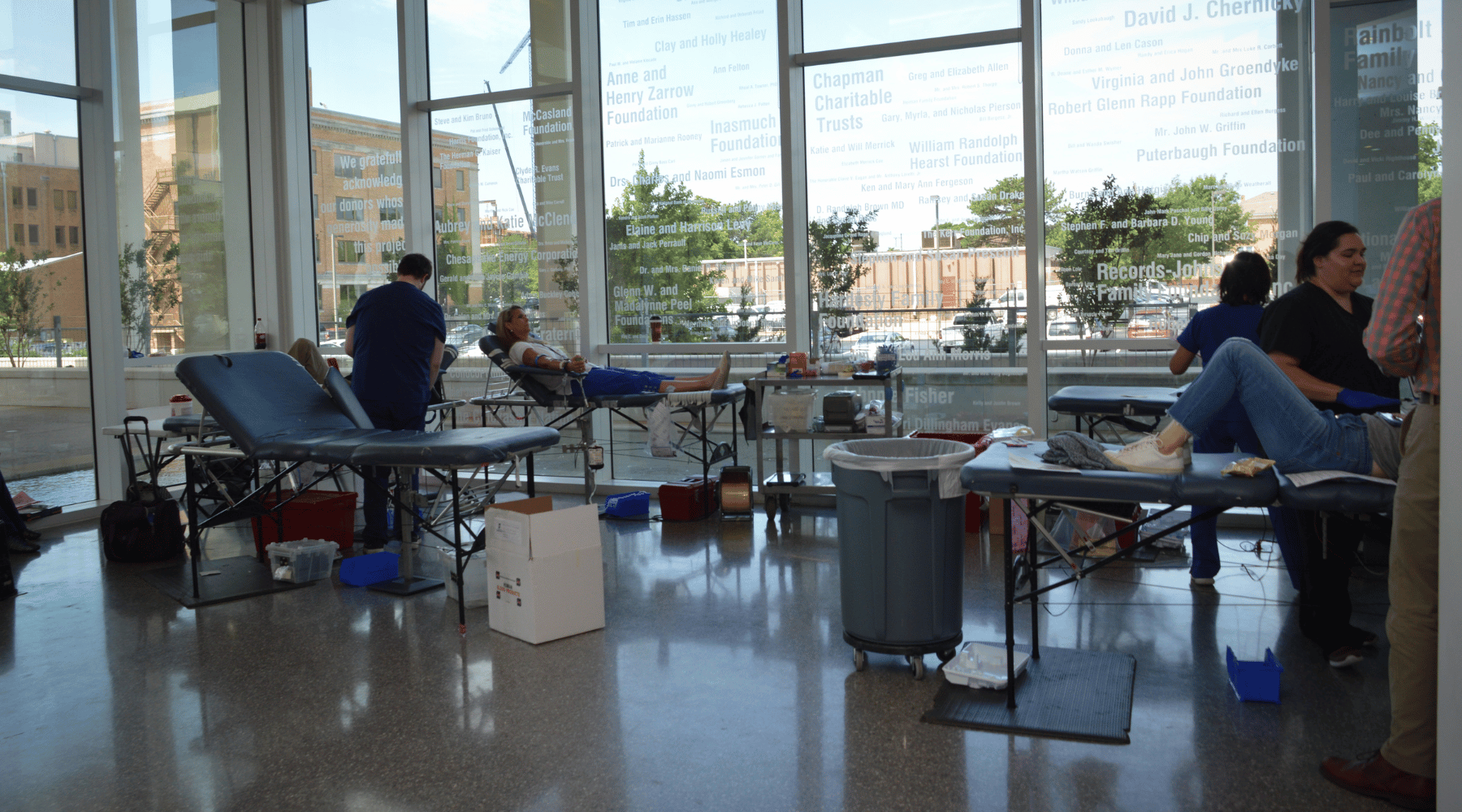Each week, OMRF Chief Medical Officer Dr. Judith James opens “Adam’s Journal” to answer a medical question from Adam Cohen, OMRF’s senior vice president & general counsel.
Adam’s Journal
We had a blood drive recently at the Oklahoma Medical Research Foundation. When I complimented a coworker for participating, he mentioned it takes the body 56 days to “replenish” that pint of donated blood. Is that true?
Dr. James Prescribes
Not exactly. Blood donation centers require donors to wait eight weeks – 56 days – between donations to ensure their body has had adequate time to replenish the blood components lost during the previous donation. But the process doesn’t usually take that long.
When you donate blood, you give up a little less than 10% of your blood volume. In a healthy donor, plasma, the liquid component of blood, is replenished within 24 hours. Platelet and white blood cell counts return to normal in a few days to a week. But red blood cells, which carry oxygen throughout the body, take four to six weeks to reach pre-donation levels.
A shortage of red blood cells can lead to fatigue, weakness, and in some cases, anemia. So, to protect the health of donors, blood collection organizations established the 8-week waiting period between donations.
Although it takes several weeks for our blood to return to normal, most people can resume usual activity levels the same day. If you engage in athletic activities – like, say, running – be sure to reduce the intensity of your workouts in the days following donation.
Numerous studies have found significant drops in athletic performance measures in the 48 hours after blood donation. In one study focused on the long-term effects of blood donation, Belgian researchers followed two dozen moderately trained young men for nearly a year. More than half of the participants donated blood once every three months, and these donors had average decreases of 4% in maximum power output and 10% in their body’s ability to utilize oxygen. The reductions were most significant in the first four weeks after donation.
Athlete or not, after you donate blood, drink plenty of water, eat a balanced diet rich in iron and other essential nutrients, and get sufficient rest. Each contributes to your body’s ability to restore blood cell levels efficiently.
–
Do you have a health query for Dr. James? Email contact@omrf.org and your question may be answered in a future column!



